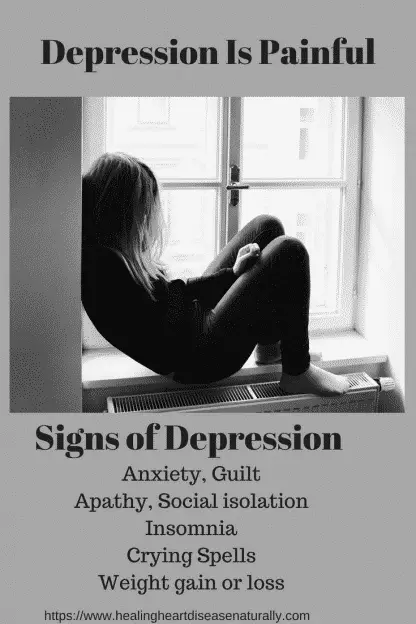Depression is a serious disease. Magnesium chloride has been shown in studies to help the symptoms of depression. Depression has been in the media in the past few weeks because of a series of celebrity suicides.
Magnesium chloride was used because it has excellent bioavailability. Magnesium has been shown in studies to help depression symptoms.
Although there are many treatments for depression, they are limited because of cost, availability, side effects, and efficacy.
There have been many research studies done on the relationship between low magnesium and depression.
What is Depression?
Depression affects close to 350 million people worldwide according to the World Health Organization.
It is estimated that only 50% of people actually receive a good outcome from interventions.
Many of the medications have many side effects that individuals cannot tolerate.
The good news is that anxiety, guilt, pessimism, procrastination, low self-esteem, and other “black holes” of depression can be cured without drugs!

The consumption of fast food is common among families.
Fast food does not have any nutrients, therefore it is likely that a person who consumes a lot of fast food will have nutrient deficiencies including magnesium.
Depression and Magnesium
It is well documented that low magnesium is associated with depression.
Due to the processing of our food and the soil that it is grown in, magnesium is depleted from the body. It is estimated that over 75% of Americans are low in magnesium.
Although the relationship between magnesium and depression is not100% known, the people who were diagnosed with depression all had improvements in their PHQ-9 scores.
The PHQ-9 is a multipurpose instrument for screening, diagnosing, monitoring and measuring the severity of depression.
Magnesium helps depression symptoms because magnesium plays a role in many of the enzymes, pathways, and hormones in mood regulation.
When someone has low magnesium, there is more calcium in the cells. High calcium deregulates synaptic function, and this results in depression.
How Does Stress Make You Have Low Magnesium?
Let’s face it, Americans are busier than ever. Both parents are working full-time jobs outside of the home, and the children are all out going to school, doing after school sports, and hanging out with their friends.
The problem is the children do not drive, therefore it is usually the parents who have to drive them all around.
This is very stressful for the parents. Excess stress can lead to depression. Stress uses up magnesium in the body.
When we are stressed, the body makes hormones to try and compensate for that stress. These hormones require magnesium. There are many types of magnesium that are available for supplementation.

The studies showed that people who were under stress had lower levels of magnesium stores, and they were more susceptible to depression.
What Type of Magnesium Was Used In the Studies for Depression?
Magnesium chloride was used in the study. The individuals took four 500mg ( total of 2000mg) of magnesium chloride for a total of 248 mg of elemental magnesium per day. Magnesium chloride oil was used because it has a high bioavailability and it is highly tolerated.
Magnesium chloride is available as an “oil”. This form is very good because it is a spray. People usually spray it on the bottom of their feet and it is absorbed directly into the bloodstream.
Magnesium for Depression Success Stories
One research trial showed magnesium chloride to be effective for the elderly with depression who had diabetes. Magnesium also decreased depression in people with fibromyalgia. The improvements in depression symptoms were seen in 2-3 weeks.
Side Effects Of Magnesium Chloride
The magnesium chloride was well tolerated. There were other positive effects noted when the individuals took the magnesium such as a decrease in headaches and muscle cramps.
My name is Phyllis Robinson MSN, RN. I have been a Registered Nurse for 27 years in the Cardiac Intensive Care Unit. I am passionate about cardiac care and heart disease. I also want this blog to be an educational tool that people can refer to for traditional and alternative treatment. I will blog on heart disorders such as high blood pressure, congestive heart failure, cardiomyopathy, and high cholesterol.
I received my Nursing degree from Baltimore Community College.
I went on to receive my Masters in Nursing from Walden University
I have worked for almost 30 years in Critical Care with a focus on heart health. I am an advocate of preventive healthcare.


